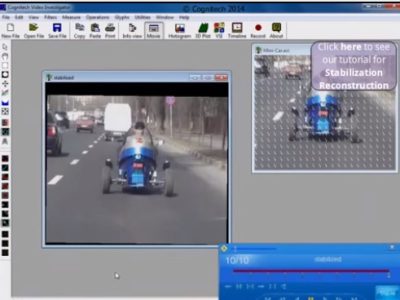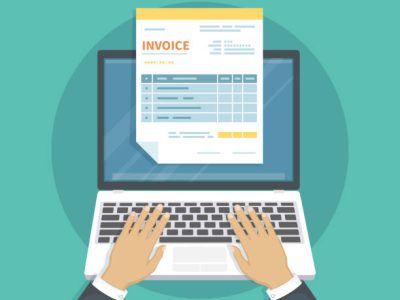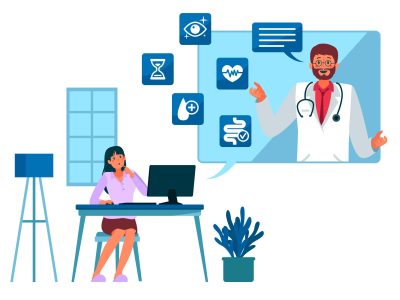Choosing a computer is not easy with the number of choices available on the market today. Fortunately, you will find tips on how to best choose a computer for you and for your budget.
A computer is the most versatile machine in the world. It can be used for work, pleasure and everything in between. The trick is to choose one that suits your specific needs, because there are many kinds of computers and all have their own unique advantages.
You’ve been eyeing the sleek, silver laptop sitting at the Apple store for months now and it’s time to make a decision. Or maybe you’re a student who needs a computer for their school work and you’re trying to decide between a Chromebook or an iMac. Or maybe you just want to know what brand makes computers that are best for students, writers, programmers and designers. Whatever your situation, there are plenty of things to keep in mind when choosing a computer.
- What you will be using it for
The most important thing is to consider how you’ll be using it: for entertainment? Schoolwork? Creating content?
If you are looking for a computer that will just play movies, check email, and browse the web, then you can get away with spending as little as $300. If that is your situation, look into Chromebooks. They are inexpensive and simple to use.
If you’ll be doing word processing, photo editing, or any other task that requires lots of memory and speed, then you’ll need to spend more. As a rule of thumb, you should spend about half your computer budget on the CPU and RAM, and about half on storage (the hard drive).
- The kind of software you will need
Then, think about what kind of software you’ll need—do you use Photoshop frequently? Do you need Microsoft Word? Are you going to be playing music while you work or play games with your friends online?
When you’re ready to invest in a computer, you’ll have to figure out what kind of software you’ll need. Different computers are better for different kinds of work.
If you’re looking for a machine that will help you produce works of art, writing and design, look for a Mac. The Mac operating system has some really great graphic design tools that make it easy to add graphics and effects to your projects. It’s also good for audio, with GarageBand software included and support for other music creation programs like Logic Pro X.
If you’re going to be working with spreadsheets or doing a lot of coding, a Windows PC is probably your best bet. Windows machines have great compatibility with the many programming languages used by developers like HTML and C++, as well as the Microsoft Office suite used by many businesses and administrators around the world.
If you want a computer that can fit into a backpack but still has some power behind it, consider a Chromebook or an iPad. Both are great options if all you need your machine to do is send emails, surf the web or take notes in class—they don’t have much storage space but they’re incredibly portable. The benefit is that if something goes wrong on your machine, it’s easier and cheaper to fix than
- What features are important to you?
At the surface level, many computers seem to have a lot in common. They all have an operating system and a keyboard, for starters. But once you start digging into their individual features, it’s easy to see that each one has its own identity and strengths.
The features to consider include fast processor speeds, minimal RAM (memory), large hard drive space, long battery life (for laptops) , high resolution display quality, lightweight design (for laptops), lots of ports (for peripherals like monitors and printers), touchscreen capabilities -Stylus pen compatibility, and fingerprint scanner compatibility.
If you plan on doing a lot of gaming, then the processor speed and graphics card will be your top priority. For multimedia editing, you’ll want to look for plenty of RAM (memory) and a high-resolution display. If battery life is your main concern, then maybe a laptop isn’t the best choice for you. And if your computer will have multiple users, such as at a work or school environment, then you’ll want to be sure that you are choosing a computer that has enough ports to accommodate everyone who needs access.
It all depends on what you’ll use your computer for the most—it could be just one task or it could be many different things, it’s up to you.
- Other things to Consider when Choosing a Computer
Once you’ve narrowed down your options based on your needs, there are other factors that might influence your decision: price, speed, appearance, portability. This can all seem overwhelming but after reading through this guide I hope that by the end of it all, you’ll have figured out what computer is right for you
There is no perfect computer, but there is probably one that’s perfect for you. The most important things you have to consider are:
- Usability
Is the machine easy to use? How much do you have to think about what you’re doing? How much of your time does it waste? Can you get support when you need it? Does it crash and lose your data a lot?
- Power
Can the machine do what you need it to do? Does it have enough memory and speed and disk space? Are the peripherals adequate?
- Price
Is the machine cheap enough for you to afford? When choosing a computer, you need to have a budget so you can compare items that are within a particular price range.
- Ease of Us
Apples are easier to use than PCs. If you’re not technical, or if what you want your computer for is fairly simple, an Apple may be right for you. PC’s are harder to use and more powerful. They also cost less than Apple’s, at least if they’re not being sold by Apple dealers; whether they’re worth the extra hassle depends on how powerful a computer you need.
General Rules
It’s easy to choose a computer if all you want to do is check email or type up a paper. But if you’re like most people today, you want to do more than that with your computer. And it’s hard to know what you’ll need without getting into the details of specific software.
But there are at least two general rules that apply to everyone:
1) Buy a computer that can run all the software you want
2) Buy the fastest computer you can afford
As for how much RAM and how big a hard drive, those are mostly questions about how much stuff you plan to store on your computer. Most people don’t need that much space: the main reason computers have gotten so much storage in recent years is not because people have more stuff but because digital versions of everything take up more space than analog versions did.
Conclusion
While there are many factors to weigh when choosing a computer, whether you’re shopping for yourself or for someone else, the best advice is to keep an open mind. You might want to start by looking at different retailers’ websites, or even calling the store in question for more information about their desktops and laptops. Compare prices online and in person, but keep in mind that many computers have different configurations of the same parts—the graphics card could be different, RAM could be different, etc. At this point, it’s also a good time to start thinking about your needs.












Comments